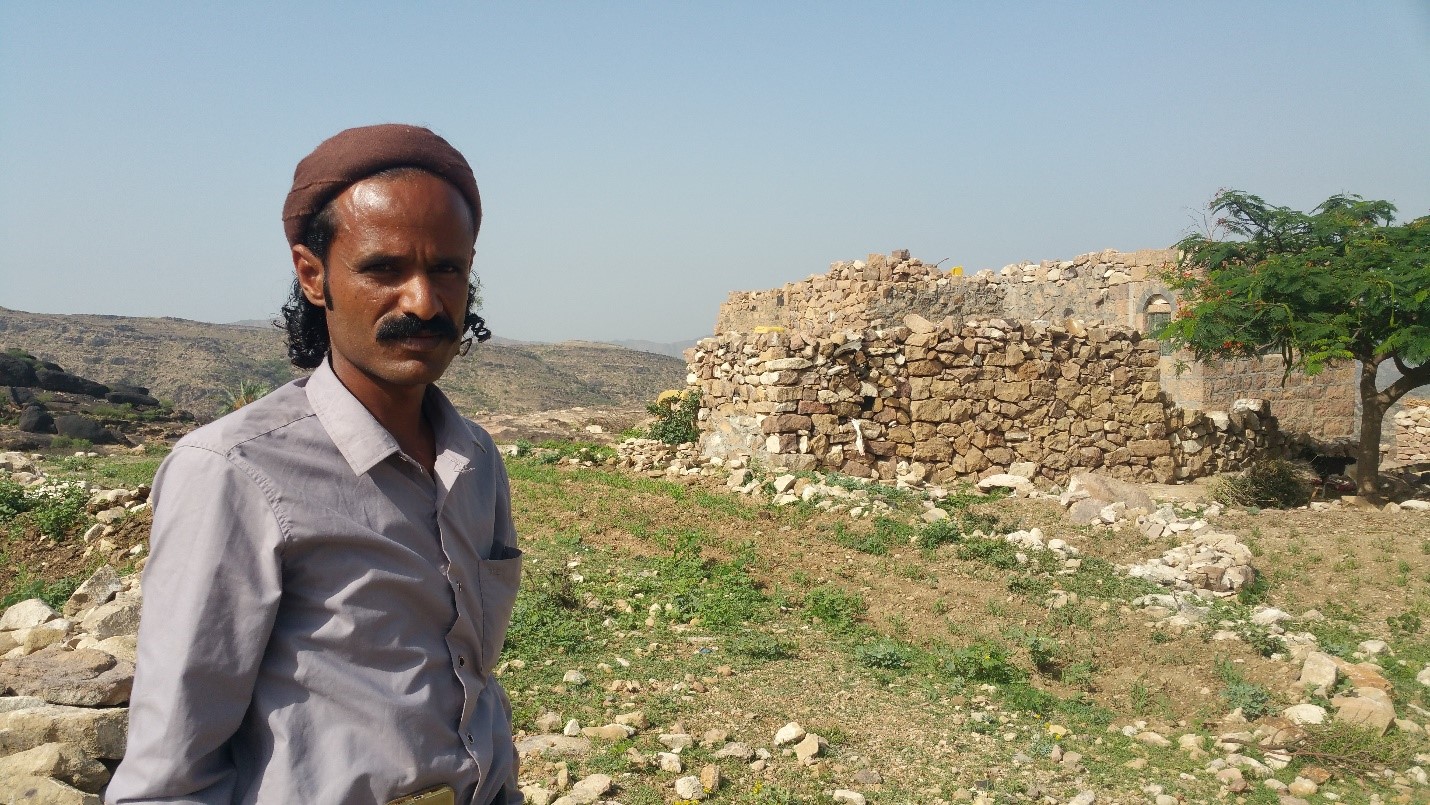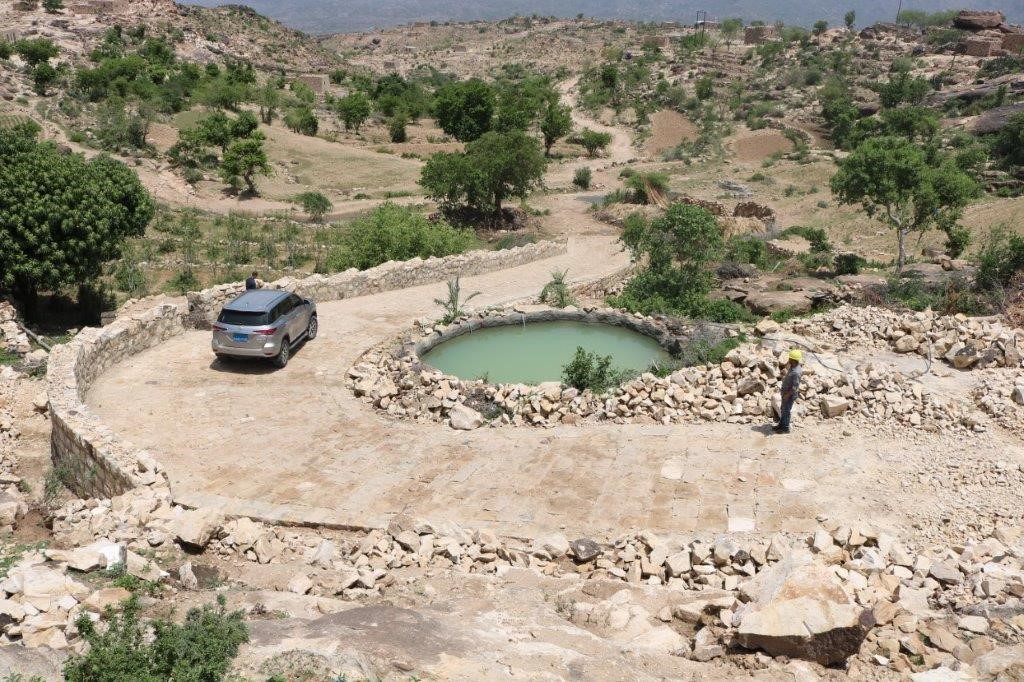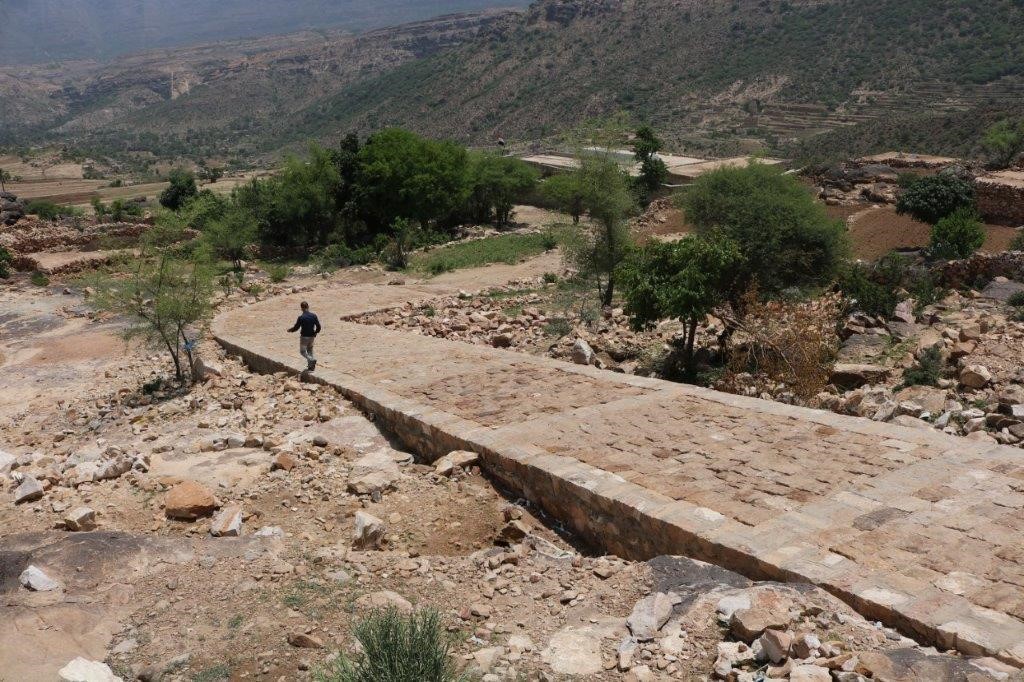Six years of armed conflict in Yemen has left between 40% and 60% of Yemenis with limited or no access to basic services. The lack of access to services, including water, health and education, has undermined Yemenis’ protection, livelihoods and led them to adopt negative coping mechanisms to survive. Given that roads are an important lifeline, poor roads further disrupt people’s access to basic services.
Almoana village of the Ash-Shmayteen district in Taiz governorate is one of the poorest villages in the region. Like many villagers who live in remote villages that sit on top of Yemen’s mountains, the people of Almoana village suffered from a lack of safe paved roads. The road was extremely destroyed. This means that they couldn’t access food, water, medicine and other basic services.
Transporting patients, including elderly and pregnant women, to the hospital was a struggle. Residents had to walk for hours to arrive nearest health facilities. The majority of residents often prefer to use home remedies due to the high costs of transportation and medications. People of Almoana village used to carry patients and pregnant women in need of urgent medical care in coffins in case they didn’t survive the long road to the nearest health facility.




